psychology
Latest

Meta gives researchers access to Instagram data for teen mental health study
Meta is letting a group of researchers examine Instagram data to determine if there's a link between social media and the state of a teenager's mental well-being.
Danny Gallagher07.17.2024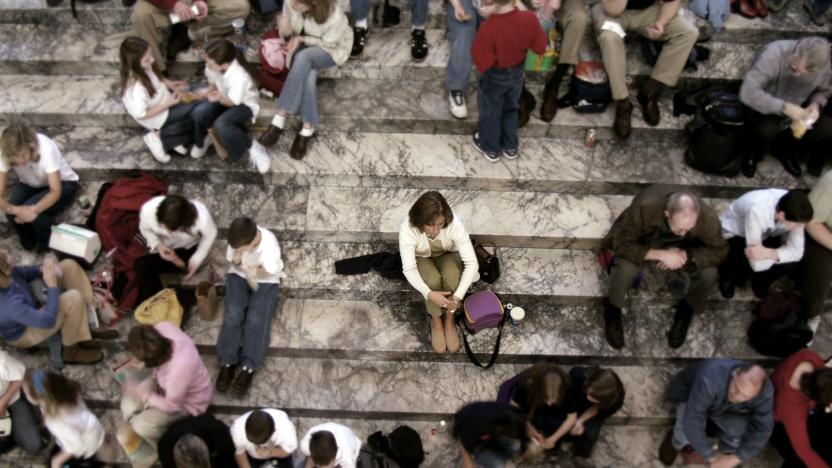
The psychological impact of COVID-19 isolation, as explained by scientists
America was already in the depths of a public health crisis when the coronavirus outbreak hit: one of social isolation and loneliness. Cigna's 2020 Loneliness Index notes that three in five Americans report a persistent sense of loneliness, a seven point jump from the previous 2018 study. Young people, ages 18 - 22 and men were most likely to report feelings of isolation with heavy social media users "significantly more likely to feel alone, isolated, left out and without companionship." Now, as broad swaths of America hunkers down for the foreseeable future to wait out the COVID-19 pandemic, our online social media usage is set to spike. But will our feelings of despondency and loneliness do so as well?
Andrew Tarantola03.27.2020
Why are we obsessed with Instagram's ‘What are you?’ filters?
We're barely one month into 2020, and one social media trend has truly taken the definition of 'viral' and rammed it down our collective throat: Instagram's "What X are you?" story filters.
Rachel England02.03.2020
Microsoft and Ninja Theory are making games to fight mental illness
In 2015, Ninja Theory released Hellblade: Senua's Sacrifice, a journey through the mind of the Celtic warrior Senua as she faced anxiety, depression, hallucinations and delusions. The Microsoft-owned studio took careful steps to respect people suffering from those conditions, and it worked with Paul Fletcher, a professor at the University of Cambridge, to accurately portray mental illness. Beyond the award recognition, Ninja Theory and Fletcher were encouraged to keep going with their work around mental health. Today, they announced their next endeavor: The Insight Project.
Christine Fisher10.29.2019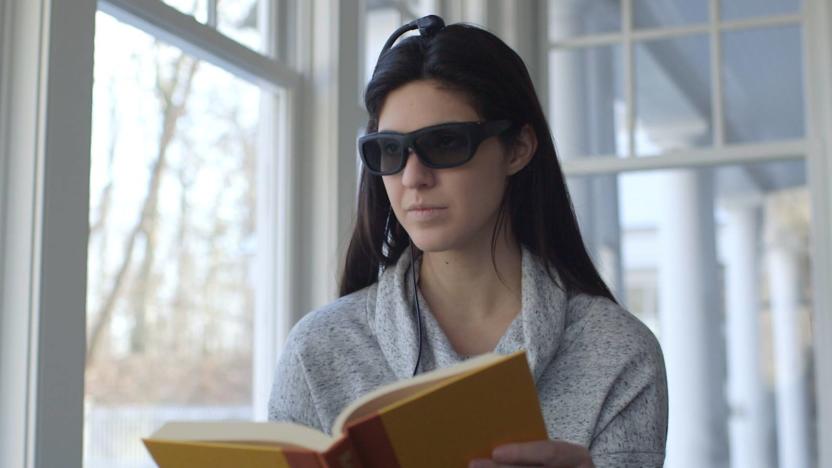
Narbis smart glasses punish distraction by turning opaque
Operant conditioning is a well known psychology principle -- in which "good" behavior is rewarded and "bad" behavior is punished. While positive reinforcement has found its way into everyday life, formal operant conditioning is usually left to professionals. For better or worse, the tech company Narbis is hoping to change that.
Christine Fisher10.29.2019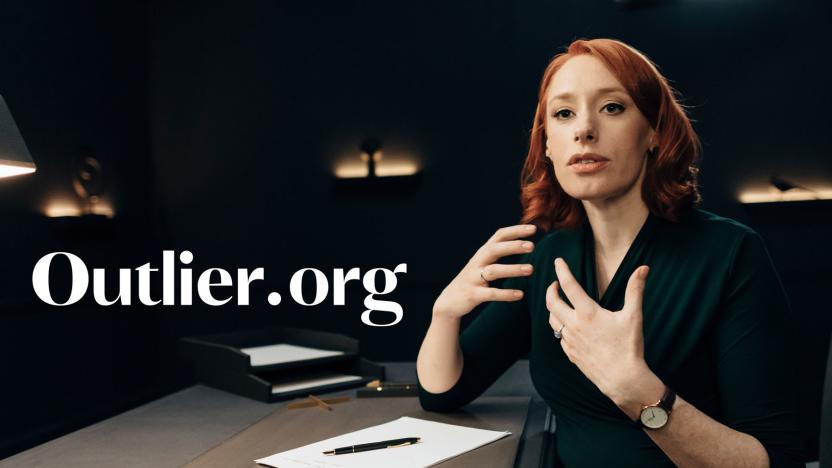
The co-founder of Masterclass wants people to try college courses online
If you've ever seen a Masterclass advert and wished you could do that for your actual degree, then it's a great day to be you. Company co-founder Aaron Rasmussen is launching Outlier, a Masterclass-style site that covers academic subjects you'd cover in real degrees. So, instead of Deadmau5 lecturing you on EDM, you get lessons on Calculus from Professor Hannah Fry (UCL), Professor Tim Chartier and John Urschel, the former Baltimore Ravens guard turned MIT educator and PhD candidate.
Daniel Cooper08.13.2019
How NASA keeps its astronauts safe and sane in space
Astronauts endure one of the most dangerous, high stakes, high stress professions on (or off) the planet -- a job matched in isolation, confinement and extremity perhaps only by arctic field scientists and ballistic missile submarine crews. Of course, the latter two rarely have to deal with radiation exposure, gravity changes, or the prospect of being sucked out an airlock.
Andrew Tarantola07.19.2019
Study suggests Facebook users are happier if they leave for a month
You've no doubt heard anecdotal evidence of Facebook users feeling better after they've quit the social network, but how often does that help, really? A fair amount, according to researchers. A study (PDF) from New York University and Stanford showed that Facebook users were happier, more satisfied with life and slightly less likely to feel anxious, depressed or lonely. They also used other social networks less, and used Facebook less when they came back.
Jon Fingas01.31.2019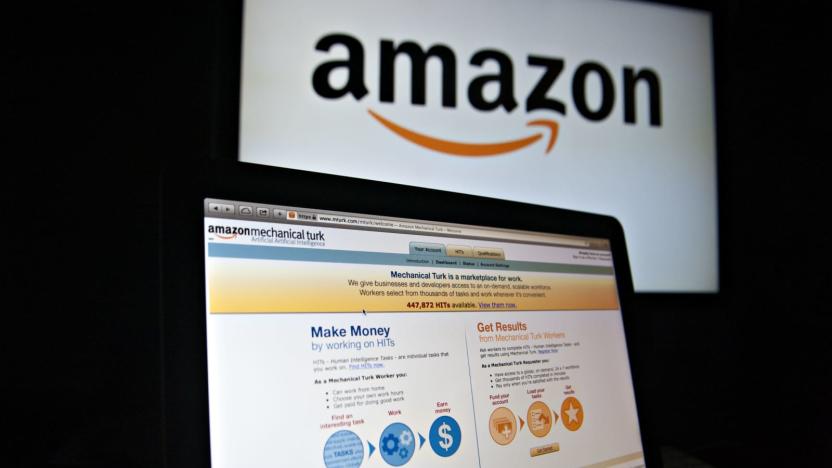
Bots on Amazon's task service may be souring psych studies
It's not uncommon for scientists to use Amazon's Mechanical Turk for research -- they can quickly gather survey data in return for a small outlay to participants. Academics are quickly discovering the limits of the task service with the modern bot-happy internet, however. Numerous psychology researchers have reported a sharp rise in the number of junk responses to their questions, many of which appear to come from bots. The offenders not only spam nonsensical answers to questions (such as "nice" or "good"), but tend to originate from the same location. And while anti-bot measures like captchas are in use, they aren't always reliable.
Jon Fingas08.18.2018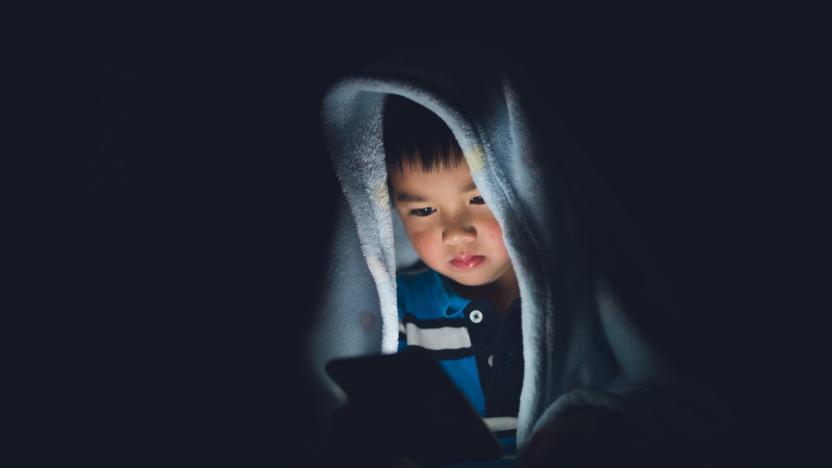
Your smartphone is a 'security blanket' for your social life
Do you instinctively reach for your smartphone whenever you're in an awkward chat with unfamiliar people, or just feel like you're the odd one out? There's likely a good reason for it. Researchers have published a study indicating that people treat their smartphones as "security blankets" to help them cope with uncomfortable social situations. In experiments, they found that people allowed to keep their smartphones had lower stress hormone levels when ignored in conversations, whether or not they were allowed to use the devices. Just the presence of the phone was enough to set them at ease, to put it another way.
Jon Fingas08.07.2018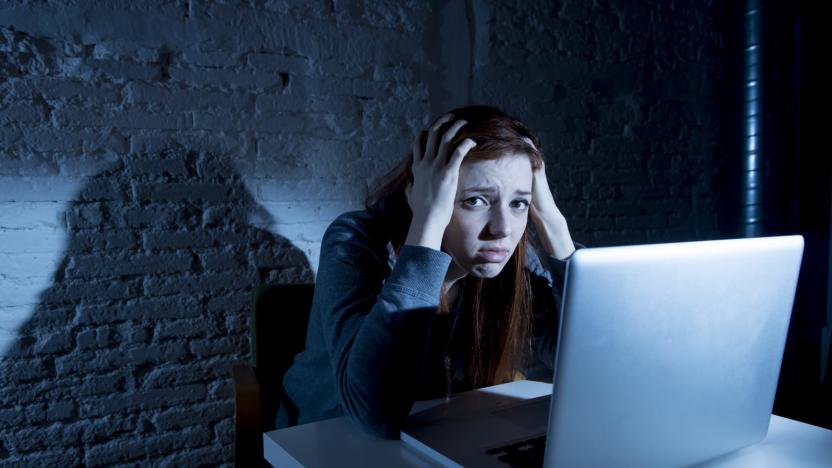
Facebook tackles the question of whether social media is bad for us
As part of its "Hard Questions" series, Facebook took on the question of whether social media is good or bad for us. Citing a handful of academic studies, some done by Facebook researchers, Facebook Director of Research David Ginsberg and research scientist Moira Burke say that it can be both and it really depends on how you use it.
Mallory Locklear12.15.2017
Bad experiences on Facebook have real-world consequences
Researchers at Brown University believe that they have established a link between Facebook use and depression. The study examined 264 people and tracked if, and when, they reported having an NFE: a Negative Facebook Experience. When that data was boiled down, the team concluded that people who reported experiencing NFEs were 3.2 times more likely to risk suffering from the symptoms of depression.
Daniel Cooper09.12.2016
New algorithm finds signs of depression in your Instagram feed
While Instagram data can already be used to guess your age, a new research paper shows how it might also be used to check upon your mental health. Using a set of machine learning tools and several dozen users' Instagram feeds, a team of researchers from Harvard and the University of Vermont have built a model that can accurately spot signs of clinical depression. By reviewing "color analysis, metadata components, and algorithmic face detection," in each user's feed, the model was able to correctly identify which Instagrammers showed symptoms of depression about 70 percent of the time, even before they had been clinically diagnosed.
Andrew Dalton08.17.2016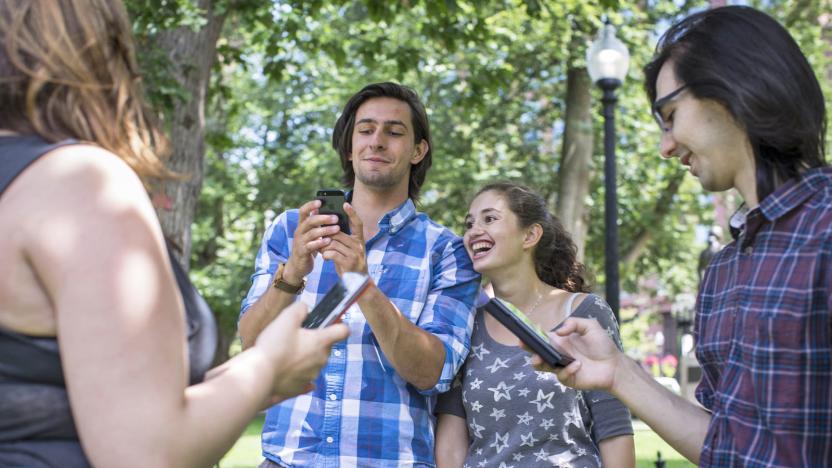
Pokemon Go's mental health benefits are real
Dr. John Grohol is an expert in technology's impact on human behavior and mental health, and for the past 20 years he's studied how people operate online. He's the founder of mental health network Psych Central, and he knows all about the latest tools aimed at helping people deal with anxiety, depression and a host of other issues. And Grohol has never seen anything like Pokemon Go. "In terms of the phenomena of people expressing the benefits of playing the game to their real-world mental health status, I think that's very unique and it's the first time I've ever seen anything like that," he says.
Jessica Conditt07.13.2016
Brain testing app will help diagnose mental health issues
Savonix is a company that claims to take the "analog processes" of cognitive assessment into the digital age. The firm is launching an iOS and Android app that, for the next six weeks, will let anyone examine their own mental ability. Users will have to undergo a series of tests that test the limits of their ability, from smart thinking through to emotional control. Whereas previously these tests would have been worked out on pen-and-paper under the supervision of a stern looking psychologist, now it's open to anyone. After the open beta closes and all of the kinks have been worked out, the app will become exclusively available to users who license the app through "healthcare organizations."
Daniel Cooper05.17.2016
A virtual reality game that's good for you and scientist-approved
It's fitting that the morning I first experienced Deep VR at the Tribeca Film Festival, billed by its creators as a meditative virtual-reality experience, I was already approaching peak anxiety levels. At 9:30 a.m., I was behind schedule (for reasons beyond my control) and huddled in a claustrophobic installation space made all the more overwhelming by various camera crews and the booming soundtrack of a heartbeat from the far corner. So when I first strapped the HTC Vive onto my head and a snug-fitting sensor around my diaphragm, I braced for the worst, assuming I'd be hit with a wicked bout of VR sickness. How wrong I was.
Joseph Volpe04.28.2016
QWERTY keyboards change how you feel about words
The keyboard is mightier than the pen for written communications nowadays, and that apparently has a large impact on how we feel about words. A good example is the QWERTY effect, where words from the right side of the keyboard supposedly have more positive associations. For instance "hunky pinup" typed with the right hand supposedly makes you feel better than the left-side only phrase "sweet dress." Swiss and German researchers have concluded that the effect works all over the web, and applies to product names, film and book titles, and video clips.
Steve Dent04.21.2016
Melomind's brain-soothing helmet gets redesigned for 2016
Technology can be stressful, and the only way to stop a bad gadget from acting on your brain is with ... a good gadget. That's the idea behind myBrain's Melomind headset, which uses neuro-feedback to try and calm your troubled head. The device clamps onto your skull and uses an EEG to examine how your brain is feeling at any point. Once it has a picture of your stress levels, it pumps specifically soothing audio back into your ears through a pair of headphones.
Daniel Cooper01.05.2016
The cyberpsychologist is in
My first session with a cyberpsychologist didn't go so well. She asked me to lay back on the couch, relax, and "think of cyber." "You know," she said, "what you do when you're angry." "Well, I don't really cyber when I'm angry-" She cut in, "Do you have penetration problems?" "No!" I stammered, "I ... I have I guess what you'd call cyber ... toys? I mean, when I want to penetrate a-" "Oh," she said acidly. "Then you must be dealing with feelings of cyber-castration. You were cut off from a network as a child, weren't you?" "Network!? Wait. Do you mean cyber, or do you mean cyber?" Okay, so my first cyberpsychology session might have actually been all in my head, but I'm far from alone in my confusion about whether the spokesperson for cyberpsychology — apparently a real term — means cyber (as in security) or cyber (as in sex).
Violet Blue11.05.2015
Teen texting can be just as compulsive as gambling
There's no question that modern teens are more comfortable with cellphones than earlier generations, but there's now evidence to suggest that some of them are a little too comfortable. A recent study shows that some teen texters exhibit the same compulsive behavior you see from gamblers, including the inability to cut back, sleep loss and lying to cover up habits. For the girls in the study, this frequently translated to poorer grades at school (though they still fared better overall than the boys). The quantity of texts didn't affect the teens so much as their inability to pull away from their devices. Sending just a few messages doesn't matter if your eyes remain glued to the screen, after all.
Jon Fingas10.12.2015